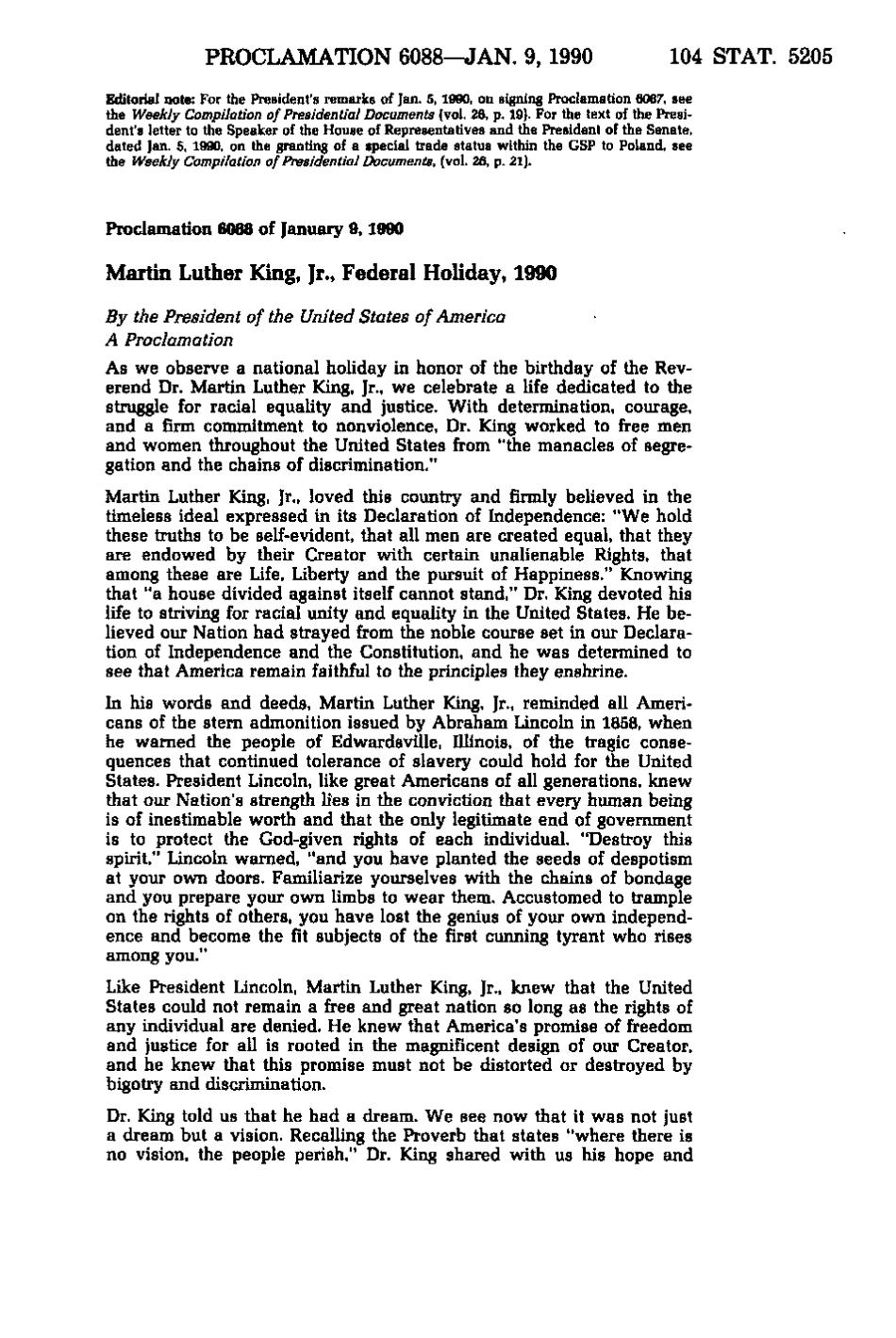PROCLAMATION 6088—JAN. 9, 1990 104 STAT. 5205 Editorial note: For the President's remarks of Jan. 5, 1990, on signing Proclamation 6087, see the Weekly Compilation of Presidential Documents (vol. 26, p. 19). For the text of the President's letter to the Speaker of the House of Representatives and the President of the Senate, dated Jan. 5, 1990, on the granting of a special trade status within the GSP to Poland, see the Weekly Compilation of Presidential Documents, (vol. 26, p. 21). Proclamation 6088 of January 9, 1990 Martin Luther King, Jr., Federal Holiday, 1990 By the President of the United States of America A Proclamation As we observe a national holiday in honor of the birthday of the Reverend Dr. Martin Luther King, Jr., we celebrate a life dedicated to the struggle for racial equality and justice. With determination, courage, and a firm commitment to nonviolence. Dr. King worked to free men and women throughout the United States from "the manacles of segregation and the chains of discrimination." Martin Luther King, Jr., loved this country and firmly believed in the timeless ideal expressed in its Declaration of Independence: "We hold these truths to be self-evident, that all men are created equal, that they are endowed by their Creator with certain unalienable Rights, that among these are Life, Liberty and the pursuit of Happiness." Knowing that "a house divided against itself cannot stand," Dr. King devoted his life to striving for racial unity and equality in the United States. He believed our Nation had strayed from the noble course set in our Declaration of Independence and the Constitution, and he was determined to see that America remain faithful to the principles they enshrine. In his words and deeds, Martin Luther King, Jr., reminded all Americans of the stern admonition issued by Abraham Lincoln in 1858, when he warned the people of Edwardsville, Illinois, of the tragic consequences that continued tolerance of slavery could hold for the United States. President Lincoln, like great Americans of all generations, knew that our Nation's strength lies in the conviction that every human being is of inestimable worth and that the only legitimate end of government is to protect the God-given rights of each individual. "Destroy this spirit," Lincoln warned, "and you have planted the seeds of despotism at your own doors. Familiarize yourselves with the chains of bondage and you prepare your own limbs to wear them. Accustomed to trample on the rights of others, you have lost the genius of your own independence and become the fit subjects of the first cunning tyrant who rises among you." Like President Lincoln, Martin Luther King, Jr., knew that the United States could not remain a free and great nation so long as the rights of any individual are denied. He knew that America's promise of freedom and justice for all is rooted in the magnificent design of our Creator, and he knew that this promise must not be distorted or destroyed by bigotry and discrimination. Dr. King told us that he had a dream. We see now that it was not just a dream but a vision. Recalling the Proverb that states "where there is no vision, the people perish," Dr. King shared with us his hope and
�
